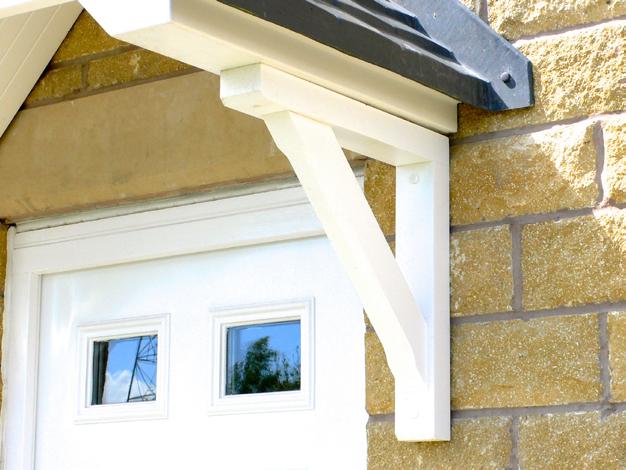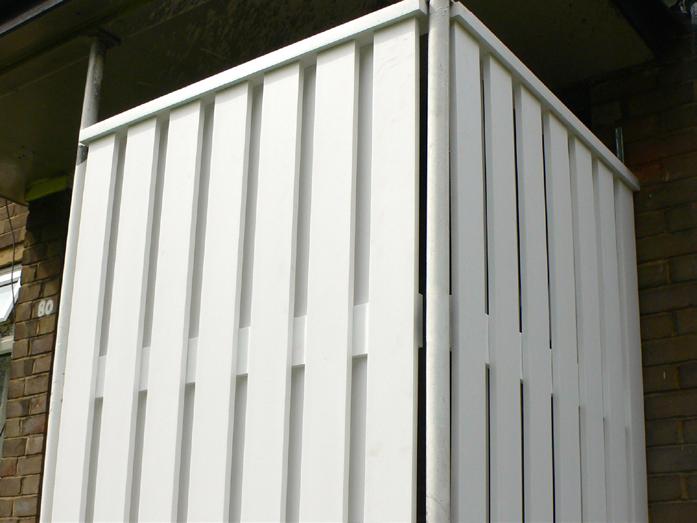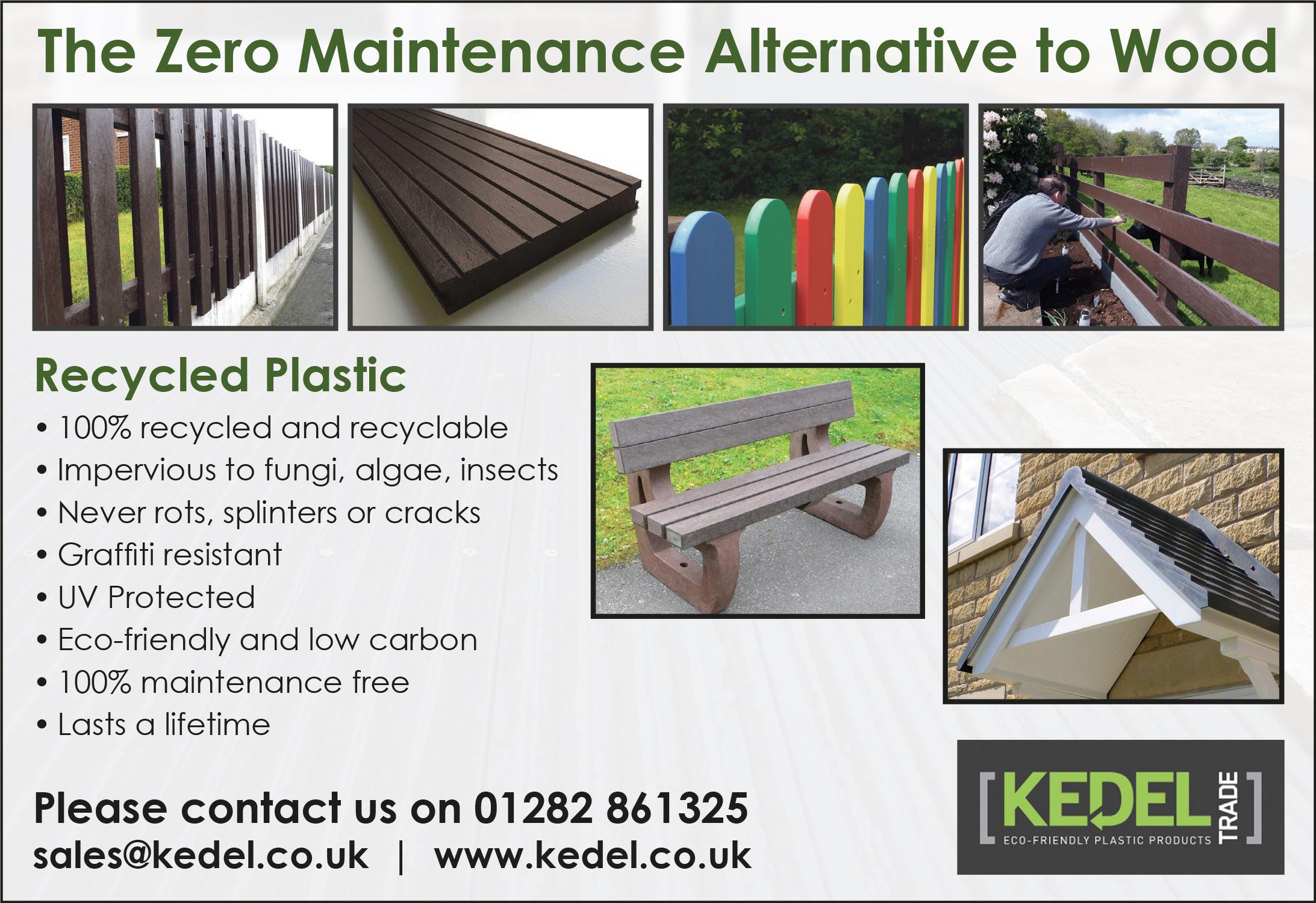
3 minute read
Modular building: Moving the needle in construction
By 2025, modular housing will be on track to deliver 20,000 low carbon, energy-efficient homes in England, including multi-storey structures and skyscrapers. With sustainability and cost savings at the forefront these homes are often built twice as quickly, cost 55% less to heat than traditional brickbuilt houses, and cut construction related CO2 emissions by 83%. The UK Government is committed to modular building as part of the Affordable Homes Programme.
Multi-award-winning Kedel is a leading business founded on sustainable best practices, with a range of recycled plastic alternatives to wooden products – many aimed at the modular building market. These include: cladding, decking, fascia boards, ground reinforcement grids, porous paving, tongue & groove, fencing, gates, seating, benches, garden and picnic tables, bollards and much more. The products are manufactured using state-of-the-art CNC machinery and everything on site is recycled plastic.
Dermot Walch, Kedel Managing Director, explains, “We have provided housing associations with our recycled plastic wood fence panels and posts offering huge long-term cost savings on repair and maintenance, plus the ability to hit ESG targets with low-carbon products. These are suitable for a diverse range of applications. In healthcare, hospitals love our memorial benches, giving family members and hospital workers a much-needed space for quiet contemplation, and our knee-high birdsmouth fencing provides a robust solution for car parks and walkways.

“These products never rot, saving on the annual repair and maintenance associated with standard wooden ones. We’re happy to work on bespoke projects too. At the moment, we’re busy designing and manufacturing temporary housing for refugee camps around the world, supporting victims in war- torn or climate change disaster areas.

“The media has always shown refugees living in tents, which is fine in the summer months, but these are not built to withstand strong winds or rain. Our designs – purely modular in concept –will be easy to erect and dismantle, and provide a sturdy housing alternative to tents, with thermal insulation and waterproofing throughout the year.
“We’ve seen a huge swing towards modular buildings this year due to the convenience of manufacture and speed of assembly. In addition, they eliminate long-term maintenance costs and reduce the building’s carbon footprint. This switch to modular construction and low carbon construction is rapidly becoming standard practice and we expect to see further growth over the coming years. Contrary to popular belief, polystyrene, with the right techniques, can be recycled, and we’re proud to be offering an exceptional product line from recycled polystyrene and other plastic waste.”
To view the multi-award-winning product range today, click here: www.kedel.co.uk




